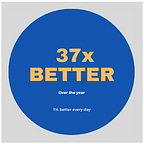A budget is telling your money where to go instead of wondering where it went.
: Dave Ramsey
A monthly budget is your financial compass, and without it, you’re sailing blind in a sea of expenses.
Why It’s Important:
- A budget ensures that you know exactly where your money goes each month, giving you financial clarity.
- It empowers you to make informed decisions about your spending, helping you prioritize your financial goals.
- With a budget, you can identify areas where you can cut costs and save more, which is the first step towards building wealth.
How to Start Budgeting
- Begin with an Honest Assessment
- List all your sources of income, including your salary, side hustles, and any passive income.
- Record every expense, from rent, groceries, and utilities to discretionary spending like dining out.
- Categorize Your Expenses
- Divide your expenses into fixed (e.g., rent or mortgage) and variable (e.g., entertainment).
- Allocate a portion of your income to each category, prioritizing essentials.
- Embrace the Envelope System
- Allocate cash into envelopes/accounts for various spending categories.
- When the envelope is empty, you can’t spend more in that category until the next month.
- Stick to Zero-Based Budgeting
- Ensure your income minus expenses equals zero. Every rupee has a purpose.
- Any surplus can be allocated to savings, investments, or debt repayment.
- Use Budgeting Tools
- Explore budgeting apps or software like YNAB, Wallet or Daily Expenses
- They can automatically track transactions, making budgeting easier.
Individuals who budget regularly save, on average, 20% more than those who don’t.
